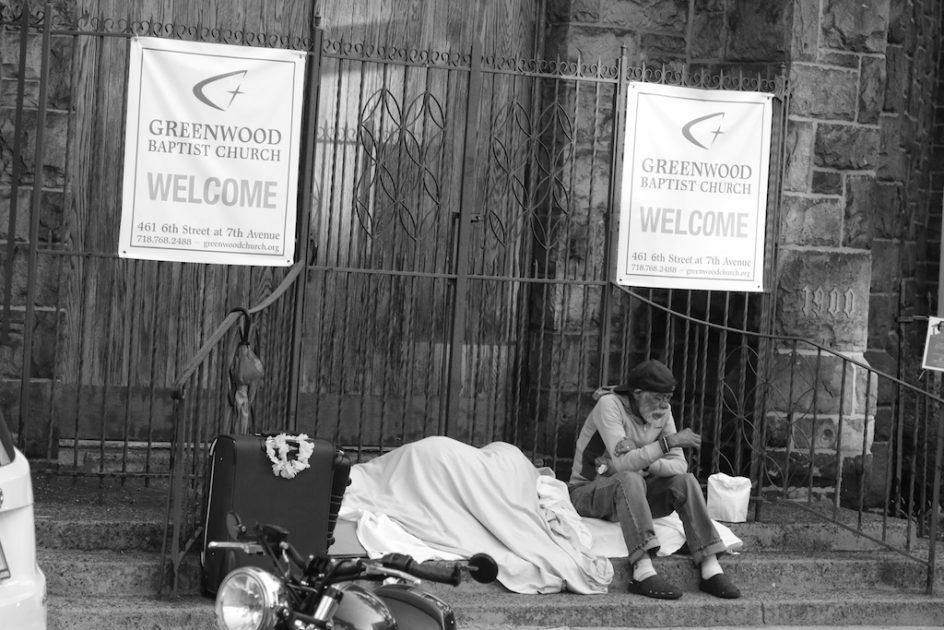
(I visited my daughter and granddaughter in Brooklyn recently and took some photos.)
Brooklyn, like much of New York City, is a place of extremes, great wealth and vitality, but also, great poverty and dislocation. Everyone in New York talks about the gentrification of the city, the explosion in rich people, tall towers, fancy stores, box and chain stores.
The poor are also evident, everywhere, they tend to hand out around the city’s beautiful churches where they can get a meal, sometimes a shower, sometimes some shelter, a stoop or step to sit down on. There are more than 55,000 homeless people in New York City, I don’t think the county I live in has that many people.
In Park Slope, I bought a bagel and coffee and sat down with my camera and watched the parade. There is not much more that is entertaining in the world than watching people walk by in the city. A man sitting in a chair with a cup asking for help was a few feet from me, he seemed very nice and well-spoken and many people walked by and said hello.
He came over to me and politely asked if he could sit down next to me while I had my coffee, he assured me that he was sane and clean. I said sure, the chair was available to anyone. I wasn’t sure what to make of him. He said his name was Marshall and he had once owned a store on this same block, it was a vacuum cleaner repair shop. He was a Vietnam vet, he said, and when Park Slope gentrified, he lost his business and then, he was evicted from the apartment he had lived in with his mother for 23 years.
Technically, he said, he is homeless, but he usually sleeps with a sister or nephew, or sometimes at a church shelter, for $15 a night. People know him, he said, because so many were his customers. And many people did greet him and know him. We talked for awhile, he was once a photographer and is also a grandfather, he said he loved the city, but soon, he said, average people would disappear from Brooklyn as they had disappeared from Manhattan.
He said the veteran’s administration took care of his health care, and he had a small pension, which, in modern Brooklyn, he said, might buy a week’s rent in a tiny apartment. He spent it on clothes and food.
He had no idea, he said, what would become of him, but this was his home and he didn’t care to leave it. When it was time to go, I stood up and gave him a few dollars, he thanked me and we shook hands.
I doubt we will ever meet again, I wonder what will become of Marshall.
My breakfast with a homeless man in Park Slope, one of the trendiest and richest neighborhoods in America, was not quite what I expected.
It was good though.
